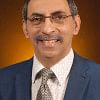
Nawshad Ahmed
Dr Nawshad Ahmed, a retired UN official, is an economist and urban planner.
Dr Nawshad Ahmed, a retired UN official, is an economist and urban planner.
There are three major aspects of women’s empowerment—social, political and economic.
There is ample evidence showing that both domestic and foreign direct investment (FDI) have a significant positive effect on economic growth.
Higher tariffs on Bangladeshi exports will cost more for American consumers, resulting in reduced demand.
Economics, the subject, and its application make it both a science and art.
The Local Government Reform Commission’s recommendation to give zila parishads a stronger planning function makes sense.
The abrupt decision by the Trump administration to freeze almost all USAID operations globally has surprised millions of vulnerable people around the world.
Local government reform must continue, keeping future demand for services in view.
Effective political leadership is essential for achieving democratic governance.
I visited more than a dozen small and medium sized towns in Bangladesh during the last two months to get a good understanding about our urbanisation trends.
A common question is how and by whom are prices fixed in the market? The question arises because every now and then the price of one essential consumer item or the other goes up without our notice.
All indications in the past few weeks give an impression that the country is turning around. Economic activities have been picking up fast after a prolonged lockdown of about four months.
If half of the population of Bangladesh and up to 70 percent of children are deficient in vitamin D, then it must be a major cause for concern for us. Despite having the natural advantage of abundant sunshine all year round allowing vitamin D synthesis, why are we having this phenomenon in our population?
Government projects targeting the poor, like any other projects, if not well planned and properly implemented, will not yield their desired outcomes.
Social research is generally not a priority during a serious crisis. Despite the fact that Covid-19 has dramatically impacted our society and altered the life patterns of a large section of the population, we have undertaken very few studies in Bangladesh to assist informed decision-making during this pandemic.
The Father of the Nation, Bangabandhu Sheikh Mujibur Rahman, was a visionary leader whose birth centenary is being celebrated this year.
In building urban infrastructure and services, we are faced with a huge challenge of meeting the demand created by increasing rate of urbanisation in Bangladesh.
Monitoring and evaluation are proven tools to determine the extent to which public sector development projects and programmes are on track and if adjustments are required to improve their performance.
I have been asked by several close friends recently, why we need social protection measures to address poverty in Bangladesh—a country which has the world’s largest microcredit programme. One might ask: is it because the microcredit programme is not fulfilling its promise of alleviating poverty and social protection is therefore going to replace it?